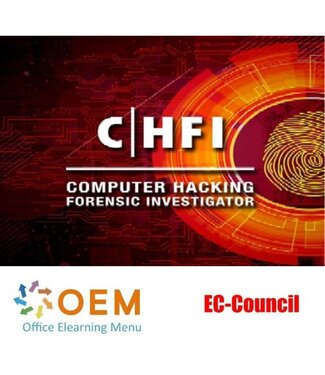The Computer Hacking Forensic Investigator (CHFI) course delivers the security discipline of digital forensics from a vendor-neutral perspective. CHFI is a comprehensive course covering major forensic investigation scenarios and enabling students to acquire necessary hands-on experience with various forensic investigation techniques and standard forensic tools necessary to successfully carry out a computer forensic investigation leading to the prosecution of perpetrators.
The CHFI certification gives participants (Law enforcement personnel, system administrators, security officers, defense and military personnel, legal professionals, bankers, security professionals, and anyone who is concerned about the integrity of the network infrastructure.) the necessary skills to perform an effective digital forensics investigation.
CHFI presents a methodological approach to computer forensics including searching and seizing, chain-of-custody, acquisition, preservation, analysis and reporting of digital evidence.
The course was designed and developed by experienced SMEs and digital forensics practitioners
A complete vendor neutral course covering all major forensics investigations technologies and solutions
Detailed labs for hands-on learning experience; approximately 50% of training time is dedicated to labs
It covers all the relevant knowledge-bases and skills to meets with regulatory compliance standards such as ISO 27001, PCI DSS, SOX, HIPPA, etc
The program presents a repeatable forensics investigation methodology required from a versatile digital forensic professional which increases your employability
The CHFI program is designed for all IT professionals involved with information system security, computer forensics, and incident response.
In order to maintain the high integrity of our certification exams, EC-Council Exams are provided in multiple forms (I.e. different question banks). Each form is carefully analyzed through beta testing with an appropriate sample group under the purview of a committee of subject matter experts that ensure that each of our exams not only has academic rigor but also has “real world” applicability. We also have a process to determine the difficulty rating of each question. The individual rating then contributes to an overall “Cut Score” for each exam form. To ensure each form has equal assessment standards, cut scores are set on a “per exam form” basis. Depending on which exam form is challenged, cut scores can range from 60% to 78%.


